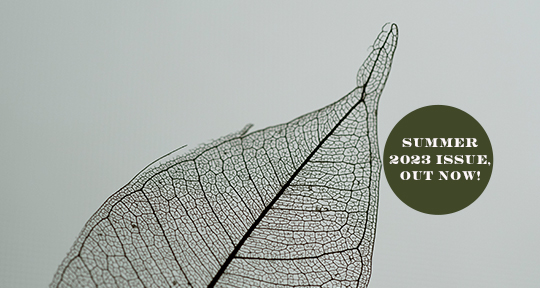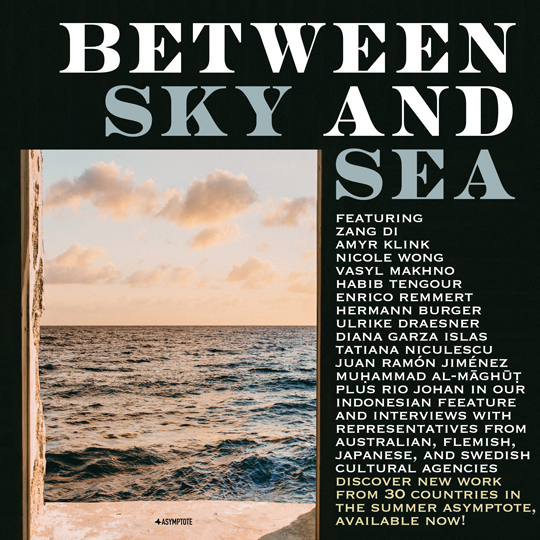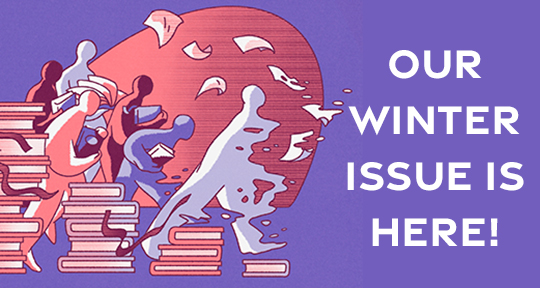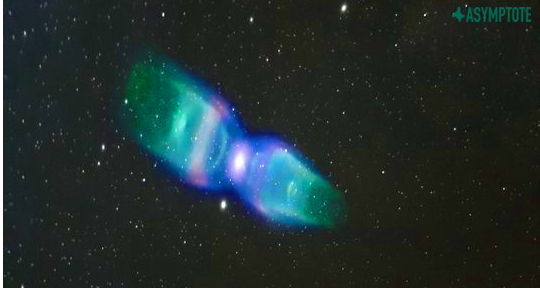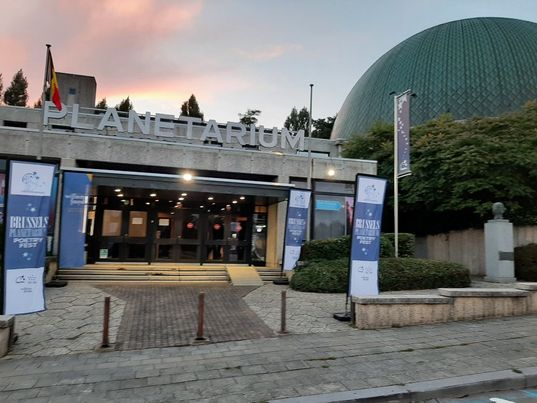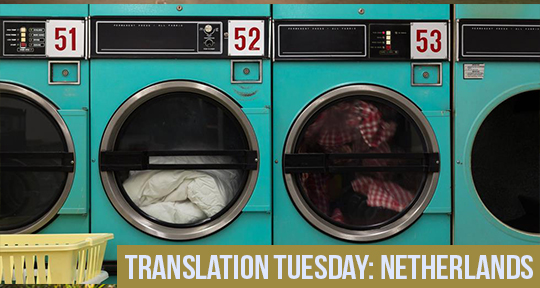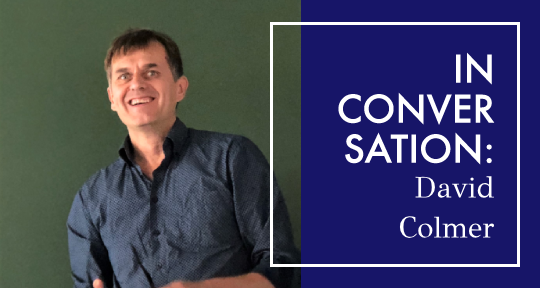Wedged between sky and sea is the thin line we all know as the horizon, ever-present in Brazilian explorer Amyr Klink’s nail-biting account of survival in shark-infested waters—just one of many new works from this Rubik’s Cube-like Summer edition. Though this particular horizon is “defined” against a clear sky on the day of Klink’s wondrous salvation, the same line is also “dun-colored” in Ecuadorian author Solange Rodríguez Pappe’s profound fiction; “lacerated” in frequent contributor Habib Tengour’s Homer-inspired sequences; mottled with “dung heaps” in Nobel laureate Juan Ramón Jiménez’s poetry; or simply a vortex toward which the ocean ebbs in award-winning short story writer Nukila Amal’s description of the aftermath of the 2004 tsunami. Within the same Indonesian Feature, organized in partnership with the Lontar Foundation, Rio Johan’s brilliantly inventive “Fruit Maps”—about a drunk bioengineer!—finds a thoughtful echo in Nicole Wong’s Brave New World Literature entry invoking terroir and fruit to further problematize the mediating role of translation in world literature beyond mere tropes of “domestication” or “foreignization.” In Romanian playwright Tatiana Niculescu’s laugh-out-loud drama, on the other hand, it’s one particular foreigner with a very specific request who gives a museum guide grief; the museum is also the setting for Chapman Caddell’s thrilling review of Argentinian novelist César Aira’s latest “flight-forward” creation. All of this is illustrated by Singapore-based guest artist Eunice Oh, whose stunning photography graces our cover.
Since the ongoing support of cultural institutions—or, in Asymptote’s case, lack thereof—makes a huge difference in what translator David Williams has wryly compared to the Olympics for being essentially a pay-for-play arena, we return to an interview series initiated two years ago and hear from four more fearless advocates who “work more backstage than onstage” to catalyze the transmission of their national literatures: Susanne Bergström Larsson from the Swedish Arts Council, Wenona Byrne from Creative Australia, Marieke Roels from Flanders Literature, and Shun Inoue from the Japan Foundation, the last sharing the same enthusiasm for manga as our Visual section’s Alexa Frank. “Because literature is such a powerful medium with which to explore the human condition and connect with one another,” Inoue says, “we must continue to look outward, not inward.” Hear, hear.
While we take some time off our issues to regroup and plan for a double milestone in January 2024 (the edition after this will mark both our 50th issue and 13th anniversary!), we hope you’ll join us in looking outward: apart from subscribing to our newsletter and international Book Club, following us in our daily blog, on Facebook, Twitter, our two Instagram feeds, and our newly launched Threads account, we invite you to come on board behind the scenes (apply by Aug 1st) or submit your own translations—who knows? you might share the same fate as contributor Anton Hur, double 2022 International Booker Prize longlistee and, as of eleven days ago, translator of BTS! Finally, if the work we do has similarly changed your life for the better, please consider advertising on our platforms, partnering with us on a Special Feature, or signing up as a sustaining or masthead member.
A toast to horizons in all their myriad forms—especially those that broaden perpetually!

